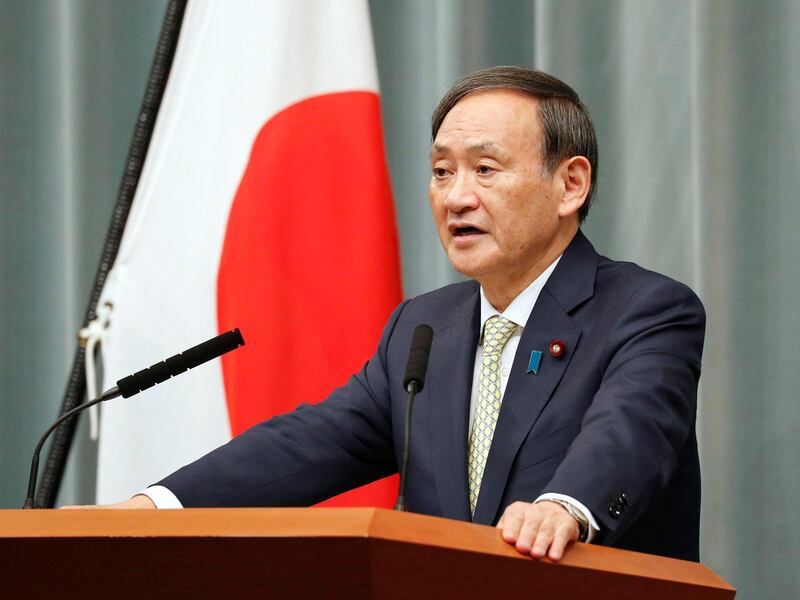NTT Docomo led a ¥3.8 trillion (Dh124.86 billion) stock rout of Japan’s top three mobile carriers after it appeared to cave in to pressure from the government, which has long claimed the nation’s phone bills are among the highest in the world.
Docomo, which said Wednesday it may cut rates 40 per cent and “return” ¥400bn to customers, plunged as much as a record 15 per cent in Tokyo trading on Thursday. Rival KDDI tumbled as much 17 per cent, and SoftBank Group slumped as steeply as 9.1 per cent amid concern that they will follow suit.
Docomo’s plan to cut rates in the year starting April 1 sparked concern that industry profits will slump for years, exacerbating a market that’s already plagued by saturation and increasing competition. The move comes after Japan’s government, particularly chief cabinet secretary Yoshihide Suga, repeatedly called for carriers to reduce phone bills.
“What surprised investors is Docomo will take about five years to recover above the profit level for the current fiscal year,” said Naoki Fujiwara, chief fund manager for Shinkin Asset Management in Tokyo. “Other major mobile carriers may have little choice but to follow Docomo with price cuts.”
During its earnings announcement on Wednesday, Docomo unveiled a mid-term plan that signaled its profits won’t recover until fiscal 2023. Docomo reduced its forecast for net income in the current fiscal year by about 3.6 per cent to ¥670bn, which would mark a 10 per cent drop and the first annual decline in years.
Docomo’s warning on Wednesday that the company will offer plans starting April 1 that will lower rates by 20 per cent to 40 per cent overshadowed the announcement that it will repurchase as much as 7.24 per cent of its stock for 600 billion yen to help drive up shareholder returns. It will consider cancelling all the shares it buys back.
On Thursday, KDDI president Makoto Takahashi said the company won’t follow Docomo’s price cuts. He said his firm had already introduced lower rates.
_______________
Read more:
SoftBank said it is considering its pricing based on competition and user needs.
SoftBank raises Yahoo Japan stake via $2bn deal with Altaba
_______________
The latest round of comments by government officials began in August, when Mr Suga said carriers have room to cut bills by 40 per cent. In response, investors lopped more than $14bn off the combined market value for the three big carriers over two days. The shares had fully recovered from that plunge, only to plummet on Thursday.
Japanese carriers are a big part of the Nikkei 225 Stock Average, with the big three accounting for about 6.7 per cent of the index’s weighting. The benchmark fell 1.1 per cent on Thursday.
Separately, KDDI agreed to provide Rakuten with roaming services for the latter’s 4G mobile network to be launched in October next year. Under the deal, Rakuten will provide its payment platforms and network of affiliated stores for KDDI’s "au Pay" barcode-and-QR payment service starting in April. KDDI also reported operating income rose 4.9 per cent to 272.8bn in the three months ended September, while sales gained 1.9 per cent to 1.24tn.
Docomo parent Nippon Telegraph & Telephone, the former monopoly that counts on mobile communications for about 40 per cent of profit, slid as much as 14 per cent.
Japan’s mobile-phone bills are the second highest among Organisation of Economic Cooperation and Development nations, according to estimates compiled by the group. High users in Japan paid an average of $69.79 a month as of May 2017, about twice the $31.46 average, the data show. The OECD based the estimate on a package of 900 calls and 2 gigabytes of data.
The carriers have said the OECD estimates don’t accurately reflect average prices for their services across various plans.






